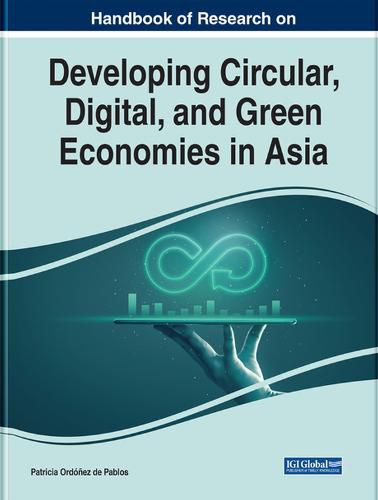Readings Newsletter
Become a Readings Member to make your shopping experience even easier.
Sign in or sign up for free!
You’re not far away from qualifying for FREE standard shipping within Australia
You’ve qualified for FREE standard shipping within Australia
The cart is loading…






This title is printed to order. This book may have been self-published. If so, we cannot guarantee the quality of the content. In the main most books will have gone through the editing process however some may not. We therefore suggest that you be aware of this before ordering this book. If in doubt check either the author or publisher’s details as we are unable to accept any returns unless they are faulty. Please contact us if you have any questions.
The COVID-19 pandemic has caused extraordinary disruptions in societies, companies, and nations across the globe. In response to this global devastation, companies need to develop business and management practices to answer new and emerging challenges and speed the recovery of economies, the creation of new jobs and prosperity, and achieve sustainable growth. The transition to digital and greener economies offers important challenges and opportunities for people, companies, cities, and governments.
The Handbook of Research on Developing Circular, Digital, and Green Economies in Asia explores new and emerging business and management practices to support companies and economies in the digital transformation in Asia with special emphasis on success and failure experiences. This book will analyze the role of digital skills and competences, green issues, and technological disruptors in these emerging practices in Asia and how they can contribute to the creation of new business opportunities, more jobs, and growth for the recovery of Asian economies after the pandemic. Covering topics including consumption values, psychological capital, and tourist culture, this book is essential for academicians, economists, managers, students, politicians, policymakers, corporate heads of firms, senior general managers, managing directors, information technology directors and managers, libraries, and researchers.
$9.00 standard shipping within Australia
FREE standard shipping within Australia for orders over $100.00
Express & International shipping calculated at checkout
This title is printed to order. This book may have been self-published. If so, we cannot guarantee the quality of the content. In the main most books will have gone through the editing process however some may not. We therefore suggest that you be aware of this before ordering this book. If in doubt check either the author or publisher’s details as we are unable to accept any returns unless they are faulty. Please contact us if you have any questions.
The COVID-19 pandemic has caused extraordinary disruptions in societies, companies, and nations across the globe. In response to this global devastation, companies need to develop business and management practices to answer new and emerging challenges and speed the recovery of economies, the creation of new jobs and prosperity, and achieve sustainable growth. The transition to digital and greener economies offers important challenges and opportunities for people, companies, cities, and governments.
The Handbook of Research on Developing Circular, Digital, and Green Economies in Asia explores new and emerging business and management practices to support companies and economies in the digital transformation in Asia with special emphasis on success and failure experiences. This book will analyze the role of digital skills and competences, green issues, and technological disruptors in these emerging practices in Asia and how they can contribute to the creation of new business opportunities, more jobs, and growth for the recovery of Asian economies after the pandemic. Covering topics including consumption values, psychological capital, and tourist culture, this book is essential for academicians, economists, managers, students, politicians, policymakers, corporate heads of firms, senior general managers, managing directors, information technology directors and managers, libraries, and researchers.